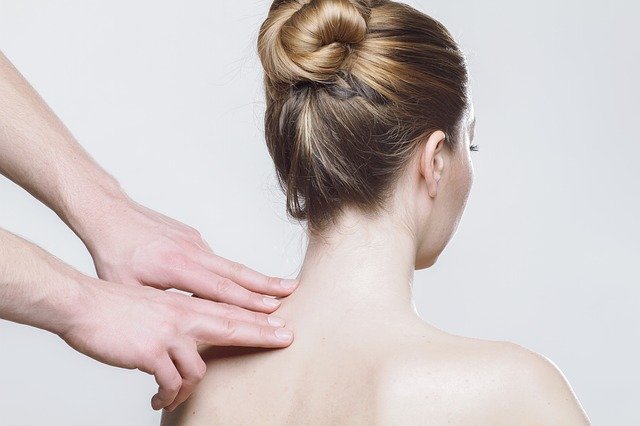
If you’ve had a massage before, you know that it’s one of the most blissful experiences you can have. The expert technique of an experienced therapist will have you at ease, and feeling relaxed as they are applying deep tissue pressure on your muscles. As beneficial as a massage may be, there is a long-standing myth that a massage will release toxins from your body. As much as we would like to believe it, unfortunately it’s not entirely accurate. This article breaks down the myth, but leaves you with helpful information on some other benefits of a massage.
Does your body actually release toxins after massage?
Toxins is a word that is thrown around a lot, without any clear, agreeable definition. In this case, we would rely on the New York Times definition of a Toxin. For humans, any substance can be toxic, if it is consumed or exposed to in excessive form. That being said, our human bodies do not produce any harmful substances themselves naturally. A toxin in a wider context is any harmful substance, which can be found in nature (i.e., Poison Ivy, or a Snake’s Venom).
Now we come back to the original question, does your body actually release toxins after massage? If our bodies don’t naturally produce any toxins, then a massage wouldn’t help us release them either. Myth debunked.
What chemical is released when you get a massage?
A massage often leaves you feeling peaceful and relaxed. Ever wondered why? Well, during a massage, your body reduces the release of the stress hormone cortisol (this chemical plays a large role in our human “fight-or-flight” responses – meaning it naturally puts us at risk of disease). At the same time, the body also releases “feel good” chemicals during the massage, which are endorphins, oxytocin, dopamin, and serotonin.
Beyond the chemicals that are released from our bodies naturally during a massage, we also love the calming experience and the human touch of massage (we’re social beings after all)!
What actually happens to your body after a massage?
There are two ways to look at the after effects of a massage; physical effects and psychological effects. Since we might be in too much of a blissful state after our massage to realize the psychological benefits, we will start with the physical effects of a massage.
According to the University of Minnesota a massage will increase blood and lymph circulation. This is due to the physical manipulation of soft tissue, and partly due to the “feel good” chemicals. The improved circulation can enhance the delivery of oxygen and nutrients to muscles (why we end up feeling so peaceful after a massage). This process also reduces swelling in soft tissues/muscles.
The other physical effect of a massage is relaxing your muscle tissue, which will in turn reduce painful contractions and spasms. A good massage can also reduce nerve compression. All of this combined will improve the functioning of muscles, and organs. Also, as an experienced massage therapist applies pressure to your muscles, these outer layers of muscles may in turn affect deeper layers of muscles. This cause and effect relationship can lead to better musculoskeletal alignment and balance. The other physical effects of a massage include: pain relief, better sleep, and improved mental health (more on that below).
There are numerous benefits of a massage for your mental health, which is why massages are so common in each and every culture. There are four main, mental benefits of a massage therapy:
- Improves your relaxation skills. During the massage, when our bodies release the “feel good” chemicals, and hold back on releasing cortisol, it helps us reduce stress and anxiety (both of which are leading causes of depression). Stress is the leading cause of many diseases as well. According to the National University of Health Sciences, you can reap the relaxation benefits of a massage after as little as 10-15 minutes, no need to shill out hundreds of dollars for a lengthy massage!
- Allows you to rest more efficiently: Massage therapy has been shown to improve sleep pattern for people of all ages. Especially for people that suffer from insomnia, cerebral palsy, fibromyalgia, migraines, and more.
- Alleviates the symptoms of chronic illnesses and diseases: By improving our relaxation skills, we are thereby able to control our stress levels more easily. People who suffer from illnesses experience higher stress levels than other people, and having an ability to reduce their level of stress in turn makes their illness a little bit more cope-able.
- Increases your overall happiness: The “feel good” chemicals that we have mentioned in this article play a large role in lowering our stress, decreasing anxiety, and reducing irritability. Meaning when you get a massage, you are inherently spreading a little bit more joy in the world!
Conclusion
While a massage may not release toxins in your body, it still has many benefits. Our bodies and minds go through a lot in day to day life, and we do owe it to ourselves to maintain a healthy lifestyle. A massage may be the perfect antidote for stress and anxiety, which in turn help us lead longer and healthier lives. So why not book a massage appointment some time soon? Give it a try!
Ameer is a part of the Marketing team at IncentFit, where they are building the most convenient and flexible Wellness solution. He was previously a Founder of a fast-growing tech startup, and then worked with an HR company as a Marketing Strategist. In his spare time, he enjoys learning, and playing competitive sports.




